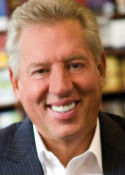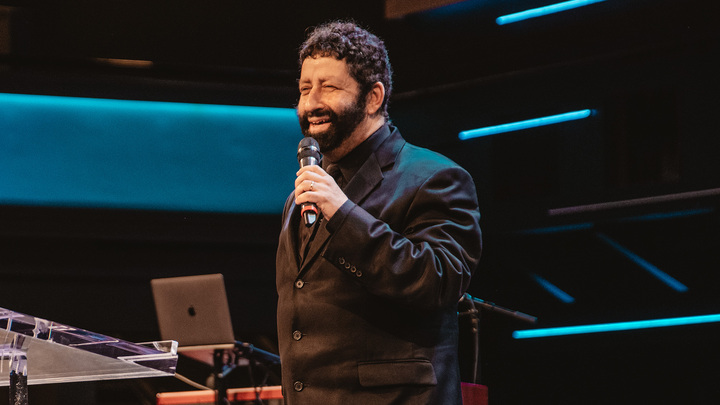Clayton Porter, my wife Margaret’s father, died in February. He was a wonderful, wonderful person—a great dad, and a great family man. He was a teacher his whole life and he did what he could while he was on this earth to add value to people’s lives.
When we had the memorial service, Margaret stood up and spoke because she’s the oldest daughter in the family. One of the things she said really touched the whole audience that day: the most important lessons that you usually learn in life—the basics, the things that you’re going to put under your belt and carry with you all the way—you learn in childhood.
She probably spent ten minutes talking about three of the most important lessons her dad ever taught her, and there wasn’t a dry eye in the place when she finished. After she sat down beside me, I squeezed her hand and told her what a great job that she had done.
Her words reminded me that people who are effective in influencing others have the ability to communicate effectively and have the ability to teach effectively. George Bernard Shaw said, “He who can does; and he who cannot teaches.”
Leading And Teaching
I would respond to that by saying that good leaders have the ability to communicate and teach. A person may be able to teach yet not lead; but a person who leads successfully also teaches successfully.
How else do you persuade everyone in an organization, whether that means 50 employees or 50,000, to move in the same direction? How do you refocus the staff around a scaled-down strategy to survive an economic slump? How do you ensure that people at every level understand the priorities of the moment? How do you develop the leaders of tomorrow?
Quite simply—you teach.
Here are the first seven tips that’ll help you teach your people more effectively. The rest will be covered in the next issue of Leadership Wired.
- It’s not about you, it’s about them.
When you’re going to communicate, always understand that you’re not the star. It’s not about you, it’s about the people with whom you’re trying to communicate. - Study your students.
Great teachers know their material and their students. To know your material and not your students means that you have something to give but no effective method to deliver it. - Students take risks when teachers create a safe environment.
It’s important for you as a leader to create an environment where there’s a sense of security for the person you want to develop. Learning requires vulnerability: when the atmosphere and the environment allow room for vulnerability, material is absorbed very quickly. - Great teachers exude passion as well as purpose.
The difference between a good teacher and a great one isn’t expertise. It comes down to passion—passion for the material and passion for teaching. - Students learn when teachers show them how much they need to learn.
Most students fail to see the gap between where they are and where they need to be. If you fail to see that gap, you lose your incentive for learning. - Keep it clear and keep it simple.
The essence of teaching—and learning—is communication; and the biggest issue that leaders face is whether people understand them. - Practice vulnerability without sacrificing credibility.
To some people, being a teacher or a leader means appearing as though you have all the answers. Any sign of vulnerability or ignorance is seen as a sign of weakness.These people can make the worst teachers. Be honest about what you know and what you don’t know, but do try to emphasize the things you do know and the things you actually can teach.
In the next issue of Leadership Wired, I will present the eight remaining tips that will help you to teach your people more effectively.
John Maxwell grew up in the 1950s in the small Midwestern city of Circleville, Ohio. John's earliest childhood memory is of knowing that he would someday be a pastor. He professed faith in Christ at the age of three, and reaffirmed that commitment when he was 13. At age 17, John began preparing for the ministry. He attended Circleville Bible College, earning his bachelor's degree in 1969. In June of that same year, he married his sweetheart, Margaret, and moved to tiny Hillham, Indiana, where he began his first pastorate.
While serving in his second church, Maxwell began to study the correlation between leadership effectiveness and ministry effectiveness. On July 4, 1976, while preaching at a service commemorating America's bicentennial, John sensed that God was calling him into a ministry to pastors. Within days after that event, pastors began to contact him, asking for his assistance in nurturing their churches. Over the next four years, on an informal basis, John helped scores of fellow pastors. Then, in 1980, he was asked to become Executive Director of Evangelism for the Wesleyan denomination.
Though his time at Wesleyan headquarters was productive, John soon realized that his deeper desire was to help pastors from numerous denominations. He knew that desire would be unfulfilled if he were to stay at denominational headquarters. As a result, in 1981 John accepted the call to return to the pastorate, this time at Skyline Wesleyan Church in the San Diego, California area. But he did so with the church's blessing to pursue his vision. The Skyline congregation allowed him to continue mentoring and assisting pastors even as he led them to new levels.
In 1985, as he continued to equip and encourage other pastors, John took the next crucial step in leadership development. He founded a new company called INJOY and created the INJOY Life Club, featuring a monthly tape for leaders. The fledging operation, established in the corner of a garage, was soon bursting at the seams. The INJOY Life Club tapes were received with great enthusiasm, and the number of subscriptions quickly increased from hundreds to thousands. Simultaneously, the demand for other resources and seminars exploded. Pastors from coast to coast were responding, and their desire for help was even greater than John had anticipated.
As the years passed, INJOY began demanding more and more of John's time. In 1995, he resigned from his position as senior pastor at Skyline following a very fruitful 14-year tenure. The church had tripled in size and its lay ministry involvement had increased ten-fold. Dr. Maxwell is in great demand today as a speaker. Through his bestselling books, audio and video resources, and major conferences, he communicates directly with more than one million people every year. He is frequently asked to speak for organizations such as Promise Keepers and Focus on the Family, but his greatest joy and desire is to help pastors become better leaders.
Because the need for leadership development knows no borders, John established EQUIP, a non-profit organization which trains leaders in urban communities, academic institutions, and within international organizations. EQUIP is also spearheading a movement which has enlisted more than one million pastoral prayer partners who covenant to pray specifically for those who shepherd God's flock.
John continues to seek new opportunities to help churches and church leaders. He knows that one thing is constant: the only hope for the world is salvation through the Lord Jesus Christ, who gives life abundantly.






